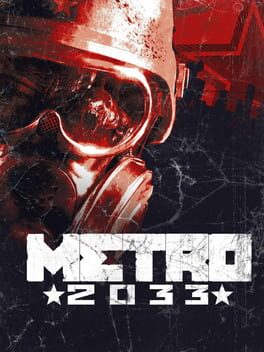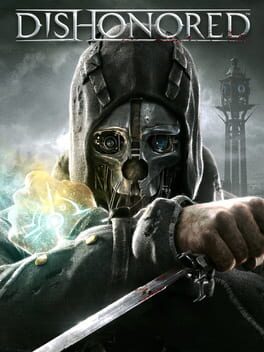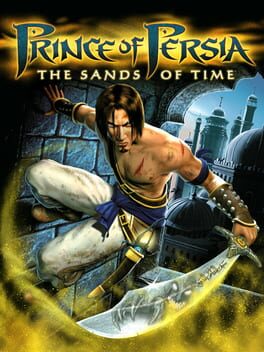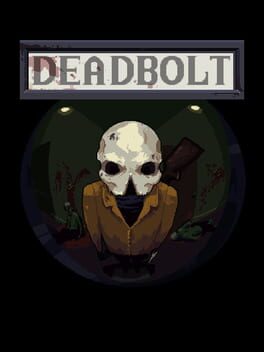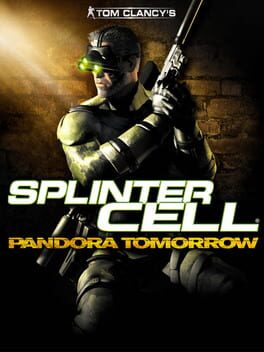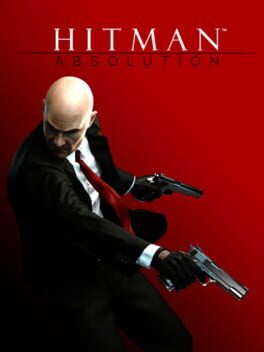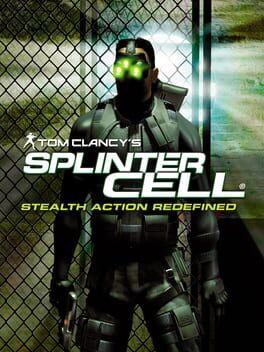Robot_Rock
Sou fã de Stealth, RPGs e uma boa história, mas aprecio imersão mais do que tudo.
PSN: gabriel_peresz
Steam: Perez
Badges

Replay '14
Participated in the 2014 Replay Event

Gone Gold
Received 5+ likes on a review while featured on the front page

N00b
Played 100+ games

Listed
Created 10+ public lists

Organized
Created a list folder with 5+ lists

GOTY '23
Participated in the 2023 Game of the Year Event

Adored
Gained 300+ total review likes

Trend Setter
Gained 50+ followers

Pinged
Mentioned by another user

2 Years of Service
Being part of the Backloggd community for 2 years

Loved
Gained 100+ total review likes

Well Written
Gained 10+ likes on a single review

Donor
Liked 50+ reviews / lists

Popular
Gained 15+ followers

Roadtrip
Voted for at least 3 features on the roadmap

GOTY '22
Participated in the 2022 Game of the Year Event

Best Friends
Become mutual friends with at least 3 others

Noticed
Gained 3+ followers

Liked
Gained 10+ total review likes
Favorite Games
121
Total Games Played
007
Played in 2024
072
Games Backloggd
Recently Played See More
Recently Reviewed See More
🇧🇷
Prince of Persia é um revival exemplar, ressignificando o passado do jogo 2D de aventura e plataforma e o transformando em algo maior, construindo em cima do que já foi criado, muitas pessoas adoravam o parkour do jogo original, de entrar naquele estado de flow após repetir a mesma série de movimentos, correr pular e escalar, mas como remover a complicação de morrer e precisar fazer tudo denovo só porque você errou um pulo específico? Simples, adicione uma mecânica de viagem no tempo, agora os jogadores podem falhar sem muita pressão e até experimentar com as mecânicas do jogo, oque não te deixa menos nervoso quando se está escalando um prédio de 30 metros de altura, pois qualquer movimento errado realmente significa a morte. Essa foi a melhor qualidade que AC herdou de POP.
É com essas mecânicas que o jogo te cativa, com a transição do 2D para o 3D (Prince of Persia 3D não conta), a gameplay expandiu em várias direções, tanto horizontalmente como verticalmente, e a Ubi usou desse espaço com maestria, cada sala de parkour é um puzzle muito bem construído, do tipo que te vicia e que te faz querer algo mais desafiador logo em seguida, e tudo vai escalando gradualmente, com novas mecânicas sendo introduzidas, pulos e escaladas ficando mais arriscadas, o'que parecia difícil nas primeiras duas agora parece algo automático, a única coisa que não evolui muito, infelizmente, é o combate, e é a parte mais fraca do jogo, é tudo uma grande repetição, uma repetição de golpes, inimigos e táticas, e a única coisa que muda é a quantidade de inimigos que você enfrenta, o'que certamente não deixa um combate simples ainda mais repetitivo.
Os visuais, junto dos cenários são magníficos, tudo, desde os designs das paredes e portas até as silhuetas dos grandes castelos trazem um ar de exótico, e a música ajuda a elevar esse sentimento ainda mais. Em resumo, os puzzles, o parkour e a história são tão bons que te fazem querer suportar o combate apesar dos pesares e continuar para ver qual será o próximo cenário incrível que o jogo vai te apresentar, a próxima sequência de parkour ou o próximo capítulo da história.
🇺🇸
Prince of Persia is an exemplary revival, reframing the 2D adventure and platform game's past into something greater, building on what has already been created. Many people loved the original game's parkour, getting into that state of flow after repeating the same series of moves, running, jumping and climbing, but how do you remove the hassle of dying and having to do it all over again just because you missed a specific jump? Simple, add a time travel mechanic, now players can fail without too much pressure and even experiment with the game's mechanics, which doesn't make you any less nervous when you're climbing a 30-meter-high building, because any wrong move really does mean death. This was the best quality that AC inherited from POP.
It's with these mechanics that the game captivates you, with the transition from 2D to 3D (Prince of Persia 3D doesn't count), the gameplay has expanded in several directions, both horizontally and vertically, and Ubi has used this space masterfully, each parkour room is a very well constructed puzzle, the kind that gets you hooked and makes you want something more challenging straight away, the only thing that doesn't evolve much, unfortunately, is the combat, and it's the weakest part of the game, it's all a big repetition, a repetition of blows, enemies and tactics, and the only thing that changes is the number of enemies you face, which certainly doesn't make simple combat any more repetitive.
The visuals, along with the scenery, are magnificent, everything from the designs of the walls and doors to the silhouettes of the great castles bring an air of the exotic, and the music helps to heighten this feeling even more. In short, the puzzles, the parkour and the story are so good that they make you want to endure the combat despite the hardships and keep going to see what the next incredible scenario the game will present you with, the next parkour sequence or the next chapter in the story.
"Tom Clancy's Splinter Cell Stealth Action Redefined" faz exatamente oque diz
Tom Clancy’s Splinter Cell é um jogo feito para aquele cara que quando era criança se esgueirava pela casa com a luz apagada, esperando nos lugares mais escuros e sabendo todas as superfícies onde seus passos não fariam barulho no azulejo, sou eu, eu sou esse cara.
Splinter Cell tem um Stealth único, diferente na sua própria forma, ele é mais realista que os demais (tão realista quanto pode ser, pelo menos) e até um pouco tático, em nenhum outro jogo luz e sombras foi tão importante quanto aqui, as fases são claustrofóbicas com poucas chances de se livrar do inimigo, com você muitas vezes tendo que passar por entre eles na escuridão, essa imaginação de se esconder a plena vista é oque alimenta a gameplay de momento a momento, e o que o torna singular.
A história de Splinter é muito complicada e, ao mesmo tempo, tem pouca exposição, se você tentar entender algo além do quadro geral ficará confuso num conflito internacional político que envolve países demais, super armas nucleares e personagens secundários rasos, exceto por Sam Fisher e Lambert, mesmo tendo pouco tempo de fala se comparado a jogos futuros, Michael Ironside casou perfeitamente com Sam e o tornou icônico a primeiro momento, é uma daquelas atuações insubstituíveis, ele é para Sam Fisher oque James McCaffrey é para Max Payne.
As fases de Splinter Cell oferecem muitos momentos memoráveis, em uma fase você estará atravessando um pátio militar usando seus óculos de visão térmica para ver minas terrestres, no outro estará invadindo a sede da CIA para sequestrar um espião inimigo, porém, as fases são bastante lineares, oferecendo sempre uma única forma de atravessar o ambiente, também faltou mais variedade de locais, tirando alguns que se destacam como a refinaria de óleo e a embaixada chinesa há muitos cenários com escritórios que acabam se tornando difíceis de diferenciar, oque está a mostra é bom, mas podia ser bem melhor, ainda mais se comparado a jogos futuros.
Por causa dessa linearidade, o jogo acaba se apoiando bastante em tentativa e erro, esse tipo de coisa está presente em quase todo jogo Stealth, mas aqui a frustração pode ser demais até para fãs do gênero.
Como se passaram 22 anos desde que lançou, Splinter Cell hoje em dia é bastante datado, modelos de personagem são pouco detalhados e as fases falham em mascarar as limitações da época, porém, há vários detalhes que ainda impressionam, as sombras do jogo são exemplares até hoje, além de ter um sistema de som muito elogiado, os desenvolvedores tentaram adicionar muita interatividade em várias salas, Metal Gear Solid 2 podia ter cubos de gelo que derretiam em tempo real, mas Splinter Cell tinha aquários de peixe que, quando atirados, sugam a água pelo buraco de bala até que o nível da água estabilize.
Mesmo tendo vários problemas, era bom ter jogos inteiramente dedicados ao Stealth para se jogar, e é interessante ver como a franquia começou, alguns jogos do gênero podem ser melhores e mais inovadores, mas nenhum era como Splinter Cell, por isso digo que o subtítulo do jogo faz oque diz, a Ubisoft criou um novo estilo de Stealth, mais realista e com mais ênfase em luz e sombra, ele redefiniu o que era Stealth em 2002 e o que ele poderia ser.
Hoje em dia, stealth é apenas um elemento de vários jogos AAA, é raro ter jogos focados em querer passar despercebido ao invés de atirar neles, por isso é tão importante reconhecer as qualidades de Splinter Cell, quando você está colado na parede com apenas o suficiente de sombra para te esconder e há um guarda a um suspiro de distância, rezando para ele não te perceber, o jogo consegue criar um suspense que não se encontra em nenhum lugar a não ser talvez, em jogos de terror.
Splinter Cell pode dever sua existência a Metal Gear Solid, mas isso não o torna menos original.
O BOM
• Sombras e luz impressionantes para época
• Movimentação e mobilidade com profundidade
• Várias situações memoráveis e desafiadoras
• Personagem principal marcante
O RUIM
• Muita linearidade
• Datado em algumas áreas
• História desnecessariamente complicada
• Seções de combate obrigatórias
___________________________________________________________
🇺🇸
"Tom Clancy's Splinter Cell Stealth Action Redefined" does exactly what it says.
Tom Clancy's Splinter Cell is a game made for the guy who, as a kid, would sneak around the house with the lights off, waiting in the darkest places, knowing all the surfaces where his footsteps wouldn't make a sound on the tiles, that's me, I'm that guy.
Splinter Cell has a unique stealth system, different in its own way, it's more realistic than the others (as realistic as it can be, anyway) and even a little tactical, in no other game has light and shadow been as important as it is here, the stages are claustrophobic with few chances to get rid of the enemy, you often have to pass between them in the dark. This idea of hiding in plain sight is what makes the game so unique from moment to moment.
Splinter's story is very complicated and at the same time has little exposition, if you try to understand anything beyond the big picture you'll get lost in an international political conflict that involves too many countries, super nuclear weapons and shallow secondary characters, except for Sam Fisher and Lambert, even if he has little speaking time compared to future games, Michael Ironside married Sam perfectly and made him iconic at first, it's one of those irreplaceable performances, he is to Sam Fisher what James McCaffrey is to Max Payne.
The campaign offers many memorable moments, in one stage you'll be crossing a military courtyard using your thermal goggles to see landmines, in another you'll be breaking into CIA headquarters to kidnap an enemy spy, but the stages are fairly linear, and there's also a lack of variety in the locations, Apart from a few that stand out, such as the oil refinery and the Chinese embassy, there are many scenarios with offices that end up being difficult to distinguish from one another. What's on show is good, but it could be much better, even more so when compared to future games.
Because of this linearity, the game ends up relying a lot on trial and error, something that is present in almost every stealth game, but here the frustration can be too much even for fans of the genre.
Twenty-two years on from its original release, Splinter Cell has become a bit dated, with character models lacking detail and stages that fail to hide the limitations of the time, but there are some details that still stand out, and the game's shadows remain exemplary to this day. Metal Gear Solid 2 could have ice cubes that melted in real time, but Splinter Cell had fish tanks that, when shot, sucked water through the bullet hole until the water level stabilised.
Even though it had a lot of problems, it was good to have games that were entirely dedicated to stealth, and it's interesting to see how the franchise started, some games in the genre may be better and more innovative, but none were like Splinter Cell, that's why I say the subtitle of the game does what it says, Ubisoft created a new style of stealth, more replayable.
Even though it had a lot of problems, it was good to have games that were entirely dedicated to stealth, and it's interesting to see how the franchise started, some games in the genre may be better and more innovative, but none were like Splinter Cell, that's why I say the subtitle of the game does what it says, Ubisoft created a new style of stealth, more realistic and with more emphasis on light and shadow, it redefined what stealth was in 2002 and what it could be.
Nowadays, stealth is just one element of many AAA games, it's rare to have games that focus on trying to go unnoticed rather than shooting at you, which is why it's so important to recognise Splinter Cell's qualities. When you're pinned to a wall, with just enough shadow to hide you, and a guard a breath away, praying he doesn't notice you, the game manages to create a tension that you don't find anywhere else, except perhaps in horror games.
Splinter may owe its existence to Metal Gear Solid, but that doesn't make it any less original.
THE GOOD
- Impressive shadows and lighting for the time.
- Movement and mobility with depth
- Several memorable and challenging situations
- Outstanding main character
THE BAD
- Too much linearity
- Dated in some areas
- Unnecessarily complicated story
- Obligatory combat sections
